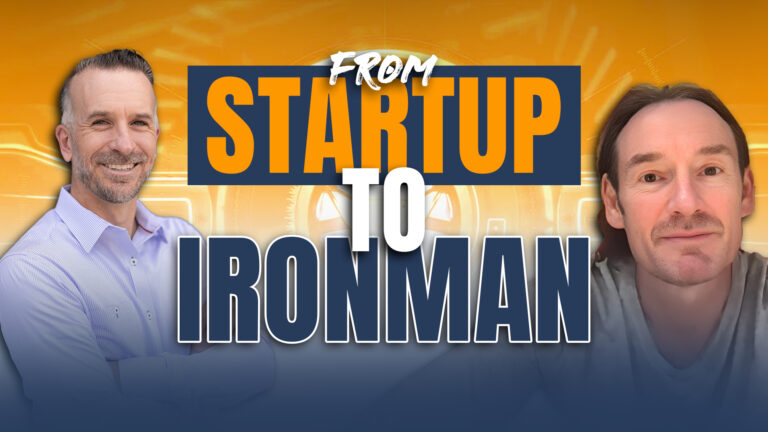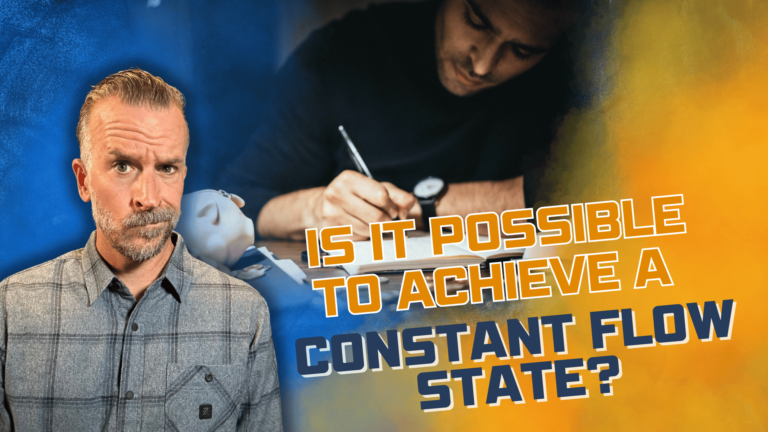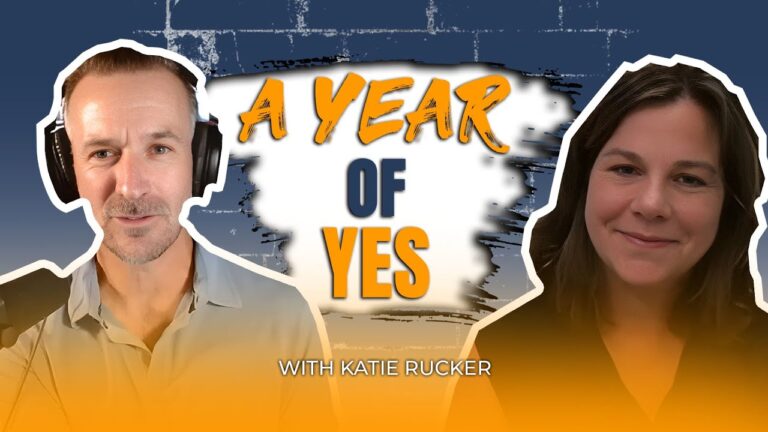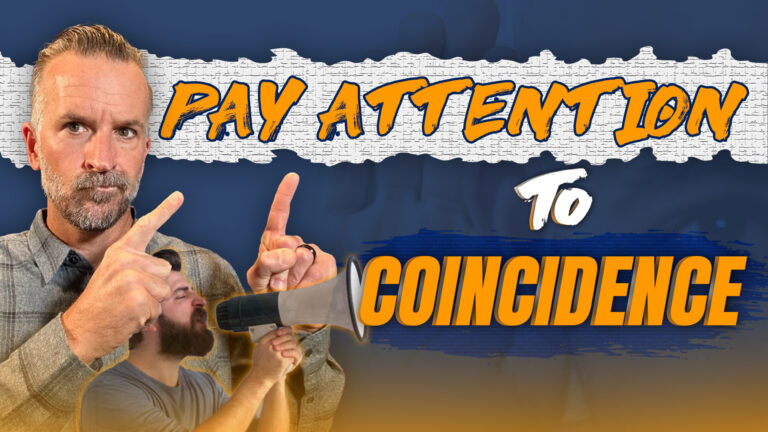Three Ways to Keep Anxiety at Bay
I’ve been sharing for years about how anxiety can be a superpower. But if you’re feeling it in the moment, and it’s overwhelming, you probably want to throw me through a plate glass window and then stab me in the eyeballs with a shard of glass.
I get it, and you’d be right to do it. Because when we’re in the midst of an anxiety attack, or just feeling the effects of high anxiety, it doesn’t feel like much of a superpower. It feels like we are falling into an endless pit of despair where there is no way out.
How can we rise above fear when we’re mired in overwhelming panic?
The answer is to make simple changes to your physiology and your state that can help you get leverage against the negative feelings of anxiety, and give you the headroom to start rising above it.
I want to introduce you to three simple ways that you can keep anxiety at bay when you’re in the midst of an anxiety attack.
Simple breathing exercises
We don’t spend nearly enough time thinking about how we’re breathing. The fact is that we take it for granted. Because we’re constantly doing it, and not thinking about it, we are taking the path of least resistance. We may be breathing too shallow, or too quickly. When we do that, we are minimizing the amount of oxygen we are taking in, which can lead to anxiety. When you experience anxiety, what happens? Your breathing gets faster and more shallow. It’s a downward spiral. This is why it is vital that when you start to experience an anxiety attack, you shift your focus onto your breathing. Importantly, deep, full, slow breaths are key. As a guide, you may want to try the following exercise. Take 10 deep breaths in the following way. Inhale deeply into your belly and fill from the bottom of your lungs up to the top for four seconds. At the top, hold your breath for 5 seconds. Then breathe out fully, pressing out the final bit of air, for another 5-8 seconds. Then repeat 10 times.
You will not immediately feel relief from the anxiety, but after a few breaths you will start to feel it. To help even more, you may include relaxing your muscles in the process. As you exhale each time, visualize your jaw, shoulders, and hands relaxing completely. If you do this, you will find that the negative anxiety will start to be reduced.
Aerobic Exercise
While breathing will help with anxiety in the moment, movement of your body will also help to keep anxiety at bay. Specifically, aerobic exercise will help to reduce anxiety and build more confidence. What is aerobic exercise? Aerobic exercise is movement that raises the heart rate to about 70-80% of your max, which promotes fat burning and energy conservation. The more effectively you introduce aerobic exercise, the more energy you will create, the healthier you will become, and the better you will feel. This includes anxiety. While you want to be careful not to do too much exercise (this can actually cause more anxiety), you will want to introduce a healthy balance of aerobic exercise to achieve the benefits. And because it’s done at an easier effort – often times walking is enough – it can be part of an active meditation. Some examples of aerobic exercise would be walking, swimming, biking, and running (hey, those are all the elements of a triathlon!… Hint… hint.).
Journaling
When you are experiencing anxiety, a lot of times it sends lots of thoughts running through your head. And when those thoughts are in your head, it’s very difficult to grasp them and bring them into the world of the rational. One of the ways to deescalate the thoughts in your mind is to get them out of your head and onto paper. There are a few ways to do this. The first is just a simple brain dump. Take five to ten minutes to simply write down all your thoughts as they come to you. Your writings may look like the crazy ramblings of a person trapped in a cave for 40 years, but with consistency it will help you to organize your thoughts a bit more effectively.
Another method is to practice gratitude journaling. At the start of your day, simply write down three things you are grateful for. It can be as simple as the fact that you have a heart that beats for you every day, or as grand as the Super Bowl championship you just won (by the way, if there are any Super Bowl Champions reading this blog that experience anxiety, please reach out to me. I’d love to have you on my podcast!). Then, at the end of the day, write down three wins that you experienced over the course of the day. These too can be small or big wins. The point of this exercise is to start and end your day focused on the positive elements that came out of the day. This will frame your mindset in a more empowered way.
If you can practice these three things in the face of anxiety, you can start to keep the negative effects of anxiety at bay, and then start to rise above it and experience greater flow. This, my friends, is how anxiety can become a superpower.
If you need greater evidence of this, look to the highest achieving people in the world and get familiar with their daily habits. Many high achievers do struggle with some level of stress or anxiety, and the habits of breathing, exercise, and journaling tend to be on the list of activities these folks practice.
These are three of the most important practices I still personally implement when anxiety comes on strong. When I am consistent with these practices, though the anxiety doesn’t go away, I find that I can more easily get my head above water and achieve the flow I need to keep going.
If you would be open to discovering how you can rise above fear and realize your ultimate potential, reach out to me for a free strategy call. I look forward to hearing from you!







